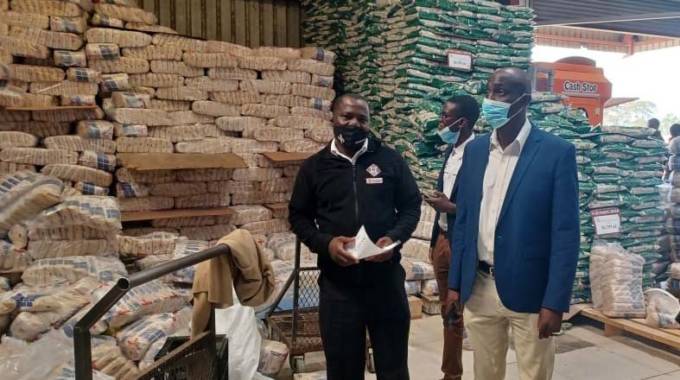
The Sunday Mail

Richard Muponde
Government is fast-tracking the release of US$30 million worth of Special Drawing Rights (SDRs) from the International Monetary Fund (IMF) and other resources to insulate industry from an anticipated influx of imported goods to ease the burden on consumers, especially in the wake of supply disruptions caused by the Russia-Ukraine conflict.
A fortnight ago, the Ministry of Finance and Economic Development allowed those with access to free funds to import basic commodities such as rice, flour, cooking oil, margarine, maize-meal, petroleum jelly, salt, sugar, milk powder, infant milk formula, tea, toothpaste, bath soap, laundry soap and washing powder.
The products can now be imported duty-free.
Industry and Commerce Minister Dr Sekai Nzenza told The Sunday Mail that the new measures would not collapse local firms as they were short-term interventions.
“Government is still maintaining its support for local companies through the Local Content Strategy and the Buy Zimbabwe campaign,” she said.
“You will note, however, that currently the country is faced with rising prices and shortages of some basic commodities. Government is, therefore, temporarily allowing duty-free importation of these basic commodities effective May 17, 2022 to November 16, 2022 to cushion the public from these temporary challenges. This is, therefore, a balancing act; we continue supporting the local industry as well as ensuring that the consumer is not overburdened by challenges currently facing the economy.”
Of the almost US$1 billion SDRs received by Government from the IMF last year, Treasury has earmarked US$30 million for retooling and enhancing value chains.
To further boost local producers, lines of credit are being worked on with the Industrial Development Corporation of Zimbabwe.
This is expected to be complemented by funds from the Reserve Bank of Zimbabwe’s foreign currency auction, which has to date funnelled over US$147 million to support local industries.
“We believe that this will provide working capital for a number of companies in the country in 2022. In addition, through the National Competitiveness Commission, we are working to enhance the competitiveness of local products so that they can compete effectively with imports,” Dr Nzenza said.
“The SDR funding for retooling is at an advanced stage of being realised. This fund will assist companies in the prioritised sectors in line with the 2022 National Budget. The prioritised sectors include cotton, leather, pharmaceuticals, fertiliser, among others.”
Government is convinced that duty-free imports will have limited impact on local producers because the timeframe will be limited to six months.
“Rice has always been imported duty-free for up to 25kgs. Salt has always been imported. Local sugar prices are currently on the high side. In terms of cooking oil, recently, there has been some shortages in the local market due the Russian-Ukraine conflict. Powdered milk has always been imported, flour has always been augmented by imports because our wheat harvest is not enough.”
Waiver on duty, she added, will reduce the cost of basic commodities and ensure consumers get goods at affordable prices.
Buy Zimbabwe chairperson Mr Munyaradzi Hwengwere said the waiver by Government was a positive move to avert shortages of basic commodities and for supplies to be cheaper on the market.
Speaking during a tour of producers, wholesalers and retailers to check on product availability on Friday, Mr Hwengwere said local products are dominant on the market but prices are too high.
“The waiver by Government came at the right time as we are encountering a strain mostly of basic commodities that are imported. However, we have discovered that local commodities are dominating the market; the problem is just the pricing. What is most surprising is prices of cooking oil which have more than doubled in US dollars, and some retailers are refusing local currency on the commodity,” he said.
He urged consumers to compare prices before buying basic commodities so that they will not be ripped off by profiteering retailers.
Confederation of Zimbabwe Retailers president Mr Denford Mutashu welcomed the Government’s move, which he said gives back buying power to consumers.
“There is need to give back to the consumers their buying power and the power to hold prices. The move will increase the availability of general commodities across the economy and ensure general price stabilisation,” he said.
Prices of basic commodities have been rising beyond the reach of consumers, as retailers have been indexing prices to volatile parallel market rates that were reportedly influenced by currency manipulators.



